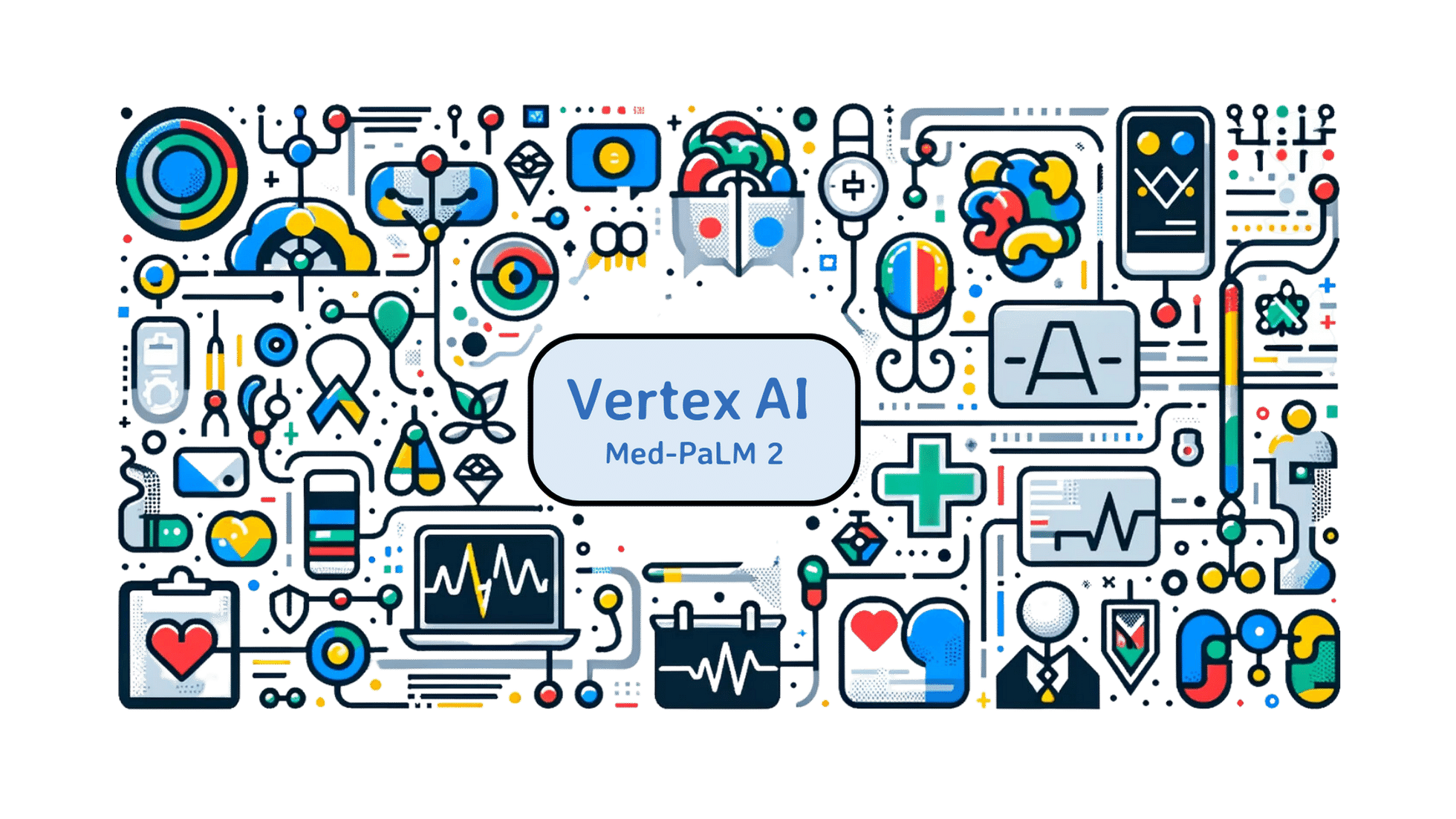Health is being digitized by the magic of Artificial Intelligence (AI), guided by the dire need of data sovereignty. And one of the juiciest developments in that realm—pun not intended here—has been the ethical use of AI, especially juicy for tiny tools like protagx, with a knack for digesting large datasets. This has been furthered heated up by the recently debated German AI in Health regulations, which put more heat on the aspect of ethics and human rights within design and deployment of AI technologies. Not to be forgotten is the advent of patient-centric platforms on safe sharing of health data. The article "Transforming Patient Health Data Sharing with a Patient-Centric Approach" on LinkedIn (3) had even given a positive focus to this trend as one reason for data sovereignty—all thanks to techniques such as Proxy Re-Encryption (PRE), which put control of data at center stage.
The Emphasis on Ethics in AI for Healthcare
The WHO's report on AI in health marks a watershed moment for global health. It highlights AI's potential to improve healthcare delivery but cautions against its risks if ethics and human rights are sidelined. This report calls for AI in healthcare to be governed by principles that prioritize human well-being, equity, and privacy. It is a clarion call for developers and policymakers to embed ethical considerations into the heart of AI healthcare solutions, ensuring they are designed with the patient's best interests in mind. The WHO's stance is clear: the deployment of AI in health must enhance the quality of care and access to it, without sacrificing individual rights or privacy.
Germany's Patient Data Protection Regulations
Germany's recent regulations on patient data protection exemplify how national policies can align with the WHO's ethical AI framework. These regulations underscore the importance of securing patient data and establishing clear guidelines for its use, ensuring that patient data sovereignty is respected. By setting stringent standards for data handling and patient consent, Germany is paving the way for a healthcare ecosystem where patient rights are paramount, and data is used responsibly to improve health outcomes.
Data Sovereignty in Healthcare
The clause in which the digital data is a subject to the laws and governance structures within the nation that it is collected defines data sovereignty. Healthcare holds a critical place for the principle of data sovereignty. This is not a question of legal compliance; rather, it is the assurance that private patient data is processed and protected in the best possible way with the highest respect for privacy and security. Complicating this, first, is the global nature of technology providers and, on the other hand, nationalistic regulations that are also a mixed bag from one place to another, even in health.
A Patient-Centric Platform for Secure Health Data Sharing
At the forefront of ethical AI and data sovereignty is a novel patient-centric platform for secure health data sharing. This approach, leveraging Proxy Re-encryption (PRE) technology, centralizes control over health data, empowering patients to manage who can access their health records. By adopting a patient-centric model, this platform addresses one of the most pressing challenges in healthcare: balancing data security with accessibility.
The platform introduces a "break-glass" approach for emergencies, ensuring that, while patient data is safeguarded against unauthorized access, it remains accessible to healthcare providers in critical situations. This balance is crucial for maintaining trust in the healthcare system and ensuring that AI and data analytics can be utilized to their fullest potential without compromising patient privacy.
Advancing Towards Data Sovereignty
The integration of PRE and a patient-centric model is a leap forward in achieving data sovereignty in healthcare. It aligns with the WHO's guidelines on ethical AI use, ensuring that data analytics, machine learning, and other AI applications in health are conducted within a framework that respects patient autonomy and privacy. This approach not only enhances data security but also fosters a healthcare environment where patients are active participants in their care, making informed decisions about who can access their data and for what purpose.
 The importance of data sovereignty goes beyond adhering to regulations; it revolves around upholding the trust of patients in a system that handles their most sensitive information. The challenges in maintaining data sovereignty are exacerbated by the fast-paced flow of data across borders, often without the explicit consent or knowledge of the individuals involved. This situation not only poses risks to privacy but also to the integrity of healthcare services, where unauthorized data usage can result in misdiagnoses or inappropriate treatments.
The importance of data sovereignty goes beyond adhering to regulations; it revolves around upholding the trust of patients in a system that handles their most sensitive information. The challenges in maintaining data sovereignty are exacerbated by the fast-paced flow of data across borders, often without the explicit consent or knowledge of the individuals involved. This situation not only poses risks to privacy but also to the integrity of healthcare services, where unauthorized data usage can result in misdiagnoses or inappropriate treatments.
The Ethical Imperative
The World Health Organization's groundbreaking report on AI in healthcare emphasizes the importance of integrating ethics and human rights into the development and application of AI technologies. The potential of AI to enhance global healthcare delivery is vast, from expediting disease diagnosis to advancing medical research and drug development. However, realizing this potential hinges on the ethical use of AI. The report underscores the need for a human-centered approach to AI, where technology is designed to prioritize the well-being and interests of individuals. Platforms like http://protagx.com play a vital role in this ethical framework, ensuring that data management aligns with principles that safeguard privacy and uphold individual rights.
Understanding Proxy Re-encryption (PRE)
At the heart of PRE lies a sophisticated cryptographic method that empowers a third-party proxy to securely transform encrypted data from one encryption key to another, all without the need to decrypt the data or access the plaintext. This process facilitates secure data sharing between entities, ensuring that data confidentiality is maintained throughout the transfer process. PRE offers a range of schemes tailored to specific security and operational needs, from unidirectional to bidirectional flows and from single-use to multi-use cases (3).The Patient-centric Model: Empowering Data Sovereignty

In the healthcare sector, where safeguarding patient data privacy and control is of utmost importance, the implementation of PRE plays a crucial role. By adopting a patient-centric approach to health data sovereignty, empowered by PRE, control over health records is shifted back to the patients themselves. This empowers individuals to manage who can access their data and enables them to make informed decisions about sharing their information with explicit consent.
Patients have the ability to grant or revoke access to their health information with detailed control, ensuring that data sharing aligns with their preferences and requirements. This strategy seamlessly aligns with the ethical principles and emphasis on human rights highlighted in the WHO's initial global report on AI in healthcare, advocating for technologies that prioritize the dignity and autonomy of individuals.
Break-Glass Approach: Balancing Security and Accessibility
One innovative feature of the patient-centric model using PRE is the implementation of the "break-glass" approach for emergency situations. This mechanism ensures that in critical scenarios where obtaining patient consent is not feasible, healthcare providers can still access essential medical records to deliver urgent care. A central trusted entity, typically a healthcare institution or government body, is granted the ability to bypass standard access protocols to retrieve data quickly and securely. This approach effectively balances the need for data security with the necessity of healthcare accessibility during emergencies, showcasing the model's dedication to both patient sovereignty and care effectiveness.The Role of Umbral in PRE
The Umbral PRE scheme represents a significant advancement in proxy re-encryption technology, providing a high level of security, efficiency, and adaptability to diverse healthcare environments. Through the use of semi-trusted proxies and threshold schemes, Umbral reduces the risk of single points of failure and enhances the overall robustness of the data sharing ecosystem.
Advancing Towards Data Sovereignty

The integration of PRE and a patient-centric model is a leap forward in achieving data sovereignty in healthcare. It aligns with the WHO's guidelines on ethical AI use, ensuring that data analytics, machine learning, and other AI applications in health are conducted within a framework that respects patient autonomy and privacy. This approach not only enhances data security but also fosters a healthcare environment where patients are active participants in their care, making informed decisions about who can access their data and for what purpose.
protagx and the Smart Ingestion of Large Datasets
protagx stands at the intersection of these developments, offering smart solutions for the ingestion of large datasets within the ethical and legal frameworks outlined by the WHO and national regulations like those in Germany. By leveraging AI and machine learning in a manner that prioritizes data sovereignty and patient consent, protagx is helping to transform healthcare into a more efficient, transparent, and patient-focused industry.
The smart ingestion of large datasets, when done ethically, can lead to significant advancements in personalized medicine, predictive analytics, and patient care management. protagx's approach ensures that these technological advancements are harnessed to improve healthcare outcomes while safeguarding patient data, aligning with the global push towards ethical AI in health.
A Decentralized Path Forward
The progression towards ethical AI and patient-focused data sovereignty presents a challenging yet promising journey. Embracing the guidelines outlined by the WHO and leveraging cutting-edge technologies like PRE hold the key to revolutionizing healthcare for the better. Platforms such as protagx stand at the forefront of this transformation, prioritizing the ethical use of AI and championing data sovereignty to create a healthcare ecosystem that is not only intelligent and efficient but also compassionate and fair. The integration of advanced data ingestion technologies with patient-centric data sovereignty platforms heralds a new era in healthcare—one that upholds the principles of human dignity and rights.
Moving ahead, the collaboration between technology innovators, healthcare professionals, policymakers, and patients will be pivotal. Together, we can harness the potential of AI and data sovereignty to shape a healthcare landscape that is not just innovative but also inclusive, ethical, and just. The future of healthcare shines brightly, and with the right approach, we can ensure that it illuminates the lives of all.
- Decentralized Data Sharing
- IPFS provides a decentralized storage network tailored to preserve critical information, such as sensitive health records. By capitalizing on the distributed and decentralized architecture of IPFS, data gets distributed across multiple network nodes, bolstering resilience against failures and censorship. This guarantees that health data remains secure and easily accessible to authorized users (4).
- Data Replication and Access Control
- IPFS Cluster, an extension of IPFS, introduces features for data replication and pinning. Data owners can define the level of redundancy for their files, ensuring durability and availability even in the event of node failures. Moreover, sophisticated access control mechanisms empower data owners to manage who can access their files, offering a secure means to share health data with specific users or groups.
- Proxy Re-encryption for Health Data
- Within this secure and distributed setting, PRE can be harnessed to further enhance privacy and access control. PRE enables the secure re-encryption of health data originally encrypted for one party, allowing another party to access it without ever exposing the unencrypted data. This means that even within a decentralized storage system like IPFS, health data can be shared and accessed based on user consent, all while maintaining robust security measures (4).
- Dynamic Adjustment of User Rights
- The integration of PRE with blockchain technologies enables dynamic adjustment mechanisms for user rights, safeguarding patient data sovereignty. Blockchain nodes can autonomously manage re-encryption key parameters, ensuring determinism in user access rights. This facilitates the dynamic modification of the visibility of transaction data, guaranteeing that only authorized parties can access sensitive health information at any given time.
Performance and Security Evaluation
The integration of IPFS and PRE within a blockchain framework presents a robust solution for securely sharing health data. With IPFS's decentralized structure and PRE's secure re-encryption capabilities, this system becomes a powerful tool for managing health data. Not only does it safeguard transaction privacy, but it also streamlines computing overhead, making it ideal for controlled sharing within the blockchain data landscape.
In summary, the incorporation of Proxy Re-encryption with blockchain data sharing technologies like IPFS marks a significant leap forward in the secure and sovereign handling of health data. This method not only guarantees the privacy and security of critical health information but also provides an efficient and scalable approach to data sharing across the healthcare sector.
Conclusion
The fusion of AI and healthcare offers a realm brimming with possibilities and hurdles. As illuminated in the WHO report, successfully navigating this landscape demands a resolute dedication to ethics and human rights. The emergence of patient-centric platforms for secure health data sharing serves as a powerful testament to the potential of ethically-driven AI in empowering individuals and improving healthcare services. As we teeter on the cusp of this technological revolution, it falls upon all key players — be it governments, healthcare providers, or tech innovators — to uphold the tenets of ethical AI. Only by doing so can we fully unleash the capabilities of AI in healthcare, ensuring that it ultimately serves the greater good of humanity while safeguarding the rights and dignity of each and every patient.
References
-
Ethjsonkey8438gslcd: WHO issues first global report on Artificial Intelligence (AI) in health and six guiding principles for its design and use. WHO issues first global report on Artificial Intelligence (AI) in health and six guiding principles for its design and use https://www.who.int/news/item/28-06-2021-who-issues-first-global-report-on-ai-in-health-and-six-guiding-principles-for-its-design-and-use (2021).
- EU AI Act: first regulation on artificial intelligence | Topics | European Parliament. Topics | European Parliament https://www.europarl.europa.eu/topics/en/article/20230601STO93804/eu-ai-act-first-regulation-on-artificial-intelligence (2023).
- Transforming Patient Health Data Sharing in a Patient-Centric Manner with OmniPHR, MedRec, and FHIRChain. Transforming Patient Health Data Sharing in a Patient-Centric Manner with OmniPHR, MedRec, and FHIRChain https://www.linkedin.com/pulse/transforming-patient-health-data-sharing-patient-centric.
- Rodrigues, Bruno & Amorim, Ivone & Costa, Ivan & Mendes, Alexandra Patient-centric health data sovereignty: an approach using Proxy re-encryption. https://arxiv.org/pdf/2307.01175v1.pdf (2023).
- Kan, J., Zhang, J., Liu, D. & Huang, X. Proxy Re-Encryption Scheme for Decentralized Storage Networks. MDPI https://www.mdpi.com/2076-3417/12/9/4260 (2022) doi:10.3390/app12094260.
- Blockchain aware proxy re-encryption algorithm-based data sharing scheme. Blockchain aware proxy re-encryption algorithm-based data sharing scheme - ScienceDirect https://www.sciencedirect.com/science/article/abs/pii/S1874490723000514 (2023) doi:10.1016/j.phycom.2023.102048.




